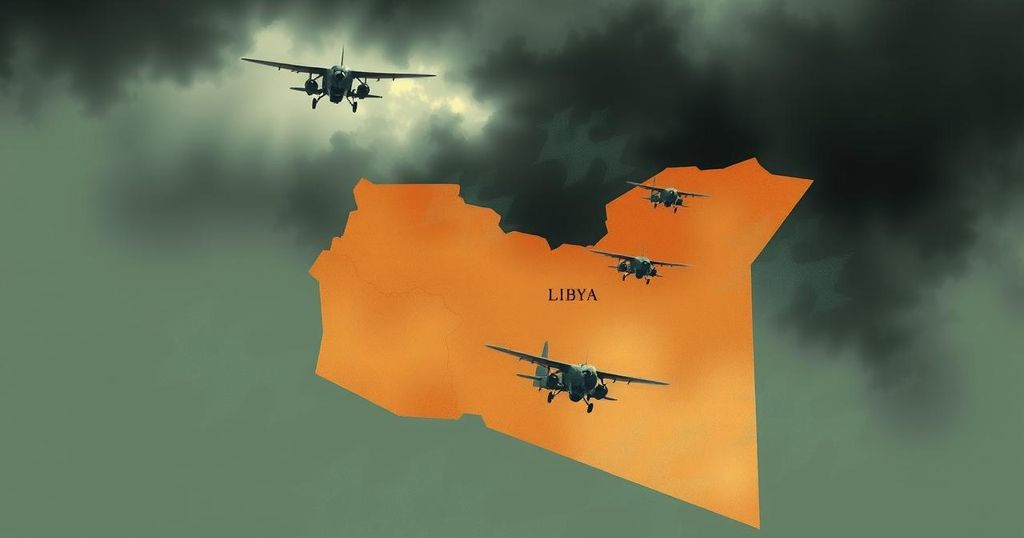U.S. Contemplates Military Flights for Migrant Deportation to Libya
The United States may be poised for its first deportations of migrants to Libya, with preparations for military flights potentially as soon as Wednesday. This consideration occurs despite the State Department’s past criticisms of Libya’s human rights actions. Uncertainty surrounds the nationalities of the migrants and whether an official agreement with Libya exists. The situation continues to unfold amid various legal and political challenges.
The United States government is reportedly considering the deportation of migrants to Libya within the week, marking a potential first for such an action. According to three U.S. officials, military flights could transport these individuals as soon as Wednesday, although plans remain subject to change. This decision comes despite ongoing criticisms from Washington regarding Libya’s troubling human rights record and the treatment of detainees within its borders.
The Pentagon declined to provide any details, directing questions to the White House. However, requests for comments from both the White House and the Department of State have gone unanswered, along with inquiries from the Department of Homeland Security. As of now, the specific number of migrants intended for deportation or their nationalities have not been disclosed by the reported administration plans.
In its yearly human rights report, the U.S. State Department called attention to Libya’s dire prison conditions and noted arbitrary arrests and detentions. President Donald Trump, who has been in office since January, pledged to deport millions of migrants and has already done so to the tune of 152,000 individuals as reported by the DHS.
Further complicating matters, the administration has used various tactics to entice migrants to depart voluntarily, including threats of exorbitant fines and legal vulnerability, along with deporting individuals to notorious facilities in both Guantanamo Bay and El Salvador. In a recent cabinet meeting, U.S. Secretary of State Marco Rubio conveyed that the U.S. aims to collaborate with other nations, suggesting, “We want to send you some of the most despicable human beings, will you do this as a favor to us” – Rubio.
The administration’s contemplation of Libya as a deportation destination has been in the works for a few weeks. However, it remains uncertain whether any agreement has been achieved with Libyan authorities to receive deportees bearing diverse nationalities.
On a separate note, the Supreme Court has temporarily halted the deportation of a Venezuelan group labeled as gang members, following a recent judicial ruling. The Trump administration is advocating to either rescind or limit this judicial ruling, which invokes a seldom-used wartime authority.
Amidst all of this, questions about due process in the possible Libya deportations loom large. Libya, since a NATO-backed uprising in 2011, has endured an unstable environment, with governance split between the East and West since 2014, and rival administrations in control of each region. The Tripoli-based Government of National Unity, led by Prime Minister Abdulhamid al-Dbeibah, was established through U.N. efforts in 2021, yet is not recognized by the House of Representatives based in Benghazi.
In conclusion, U.S. plans to potentially deport migrants to Libya highlight a significant shift in immigration policy amid human rights concerns. While efforts to negotiate agreements with Libyan authorities are underway, the implications of such actions remain complex and troubling. The situation continues to evolve, particularly with lingering uncertainties surrounding legal processes and ongoing assessments of Libya’s political landscape.
Original Source: www.hindustantimes.com




Post Comment